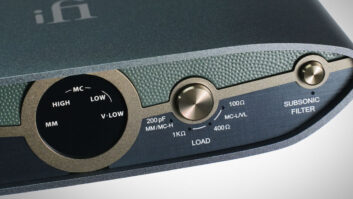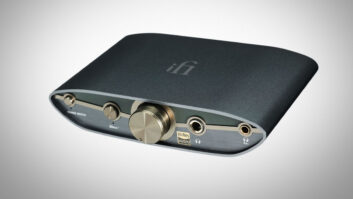
Qualcomm is ready for the wireless revolution, and it’s heading to CES 2018 with a host of supportive announcements.
Chief among its news is the introduction of the new Low Power Bluetooth SoC QCC5100 series. Geared toward the manufacturing of hearables, the SoC will reduce device footprint and dramatically improve battery life, shrinking power consumption by as much as up to 65 percent when compared with previous single-chip Bluetooth audio solutions.
These upgrades are expected by the company to have a significant effect on use cases for consumer electronics, especially in the headphones category — a segment experiencing another resurgence thanks to smartphones dropping the 3.5mm ports and consumers flocking toward wireless models.
Get this kind of CE coverage all year long — subscribe to the free TWICE eNewsletter.
In addition to supporting such features as TrueWireless Stereo, AptX HD, Bluetooth 5.0 and 2Mbps Bluetooth Low Energy, the QCC5100 series also supports hybrid active noise canceling and third-party voice assistants. Anthony Murray, senior VP and general manager of Qualcomm’s voice and music business unit, told TWICE in a pre-CES interview that consumers are coming to expect such features as active noise canceling as standard in their headphones.
The rising use of voice assistants, meanwhile, could potentially mark a movement toward an environment in which people may wear their headphones nearly all day, instead of just for listening to music. Murray pointed to the Apple AirPods as an example of a device that could be worn either mono or stereo, providing a form factor that enables wearers to choose how “connected” to their environment they wish to be.
While limited battery lives for wireless hearables previously prohibited this use case, Qualcomm’s new SoC intendeds to make it viable. The industry could also see effects in healthcare wearables, enabling heart sensors, for example, to operate for an entire day and opening up the potential for preemptive healthcare, said Murray. Hearing devices could become as personally tailored as reading glasses, able to adjust on the fly the amount of ambient noise that’s necessary for a specific user in a specific environment.
As with most tech in 2018, the QCC5100 series is designed to support the use of voice-assistant services. It will be in full production in March, said Murray, and the industry can expect to see products featuring the SoC this year.
In addition to the new SoC, Qualcomm is also announcing at CES that its Smart Audio Platform has been qualified by Amazon for the Alexa Voice Service (AVS). According to the company, it’s the first fully end-to-end audio processing and system reference design for AVS from a single vendor.
Features include multi-microphone far-field voice and always-ready wake-word detection; integrated hi-fi audio playback and post-processing algorithms; beamforming, echo cancellation and noise suppression; Qualcomm AllPlay multiroom networking solution for whole-home synchronized audio streaming; and barge-in support and voice capture in high-noise environments.













